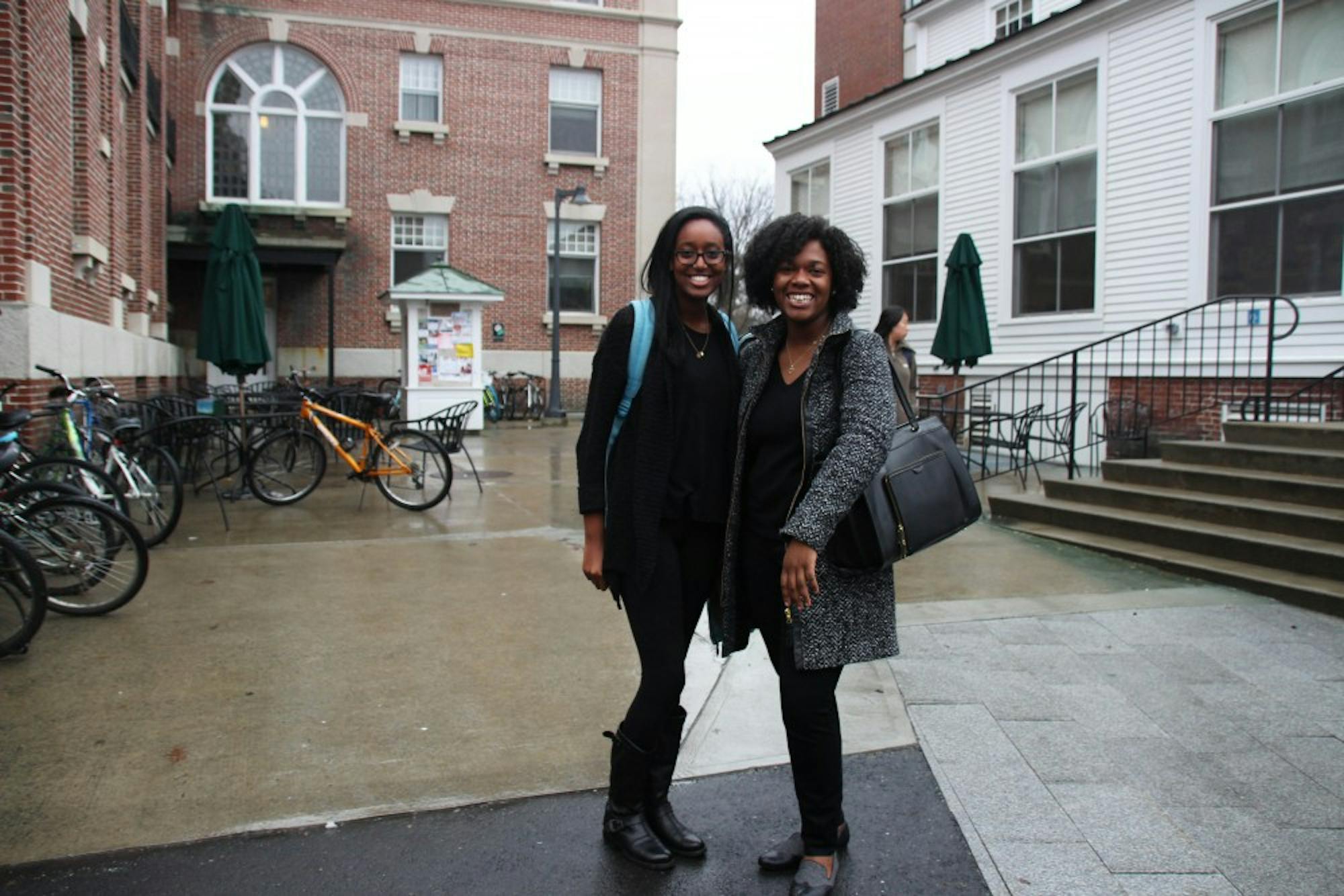It’s often said that Dartmouth has a drinking problem. Yet alcohol is not always the guilty party. Many students limit their consumption of beer, wine and liquor to a few nights a week, but another drug is a part of their daily routines. And unlike alcohol, it’s socially acceptable before noon — we’re talking about caffeine.
One only need to look at the line at King Arthur Flour in the moments before 10s begin to know how vital caffeine is to the average student’s morning ritual. Be it via black coffee, a fancy Frappuccino, green tea, soda or an energy drink, odds are that you and most people you know are ingesting some form of caffeinated beverage at least once through the day, if not more.
Lauren Huff ’17 said she adopted her mom’s Diet Coke habits at a young age, eventually developing a dependence on the bubbly beverage.
“When I was abroad this past spring, I had a hard time not having access to normal American Diet Coke,” Huff, who prefers soda over coffee, said.
Indeed, coffee is the caffeine vehicle of choice for most. Some students, the writer included, know that a big cup of coffee will have them bouncing off the walls. For others, like Kyle McGoey ’16 and Kelly Bach ’16, the effect is less extreme.
“[For me], I think the baseline effect is I don’t want to sleep as much as I did before,” McGoey said.
In some cases, however, the first cup isn’t enough, and some students admit to drinking several throughout the day, even more than one at a time.
“It isn’t until I get to my third cup of coffee that I feel the effect of coffee hitting me,” Bach said. “It’s a delicious drink, but until then it’s not doing anything for my brain.”
More astute coffee drinkers, like Nick Hodgson ’16, can even differentiate between the caffeine effects of different drinks.
“If I drink a huge Dunkin Donuts coffee... it doesn’t have as big of an effect on me than if I’d had French press,” Hodgson said.
Ben Vihstadt ’16 and one of the founders of Dartmouth’s Coffee Club, echoed this sentiment. Vihstadt said coffee chains and many campus eateries serve dark roast coffee, which is less caffeinated because roasting the beans longer causes the caffeine to incinerate.
Vihstadt acknowledged that the primary reason many Dartmouth students drink beverages like soda and coffee is for the caffeine. Coffee Club, however, is trying to change that.
“Bad coffee’s just really not fun,” Vistahdt said. “I make my coffee, and there are a lot of people in Coffee Club now who are starting to do the same. They’ve realized how good making your own coffee can be.”
Coffee as a social act is another main draw — students crowd the KAF line, Dirt Cowboy and sometimes Starbucks on “study breaks” to gossip about the happenings in their lives.
“People will just like to go on a study break and get a coffee even when they don’t actually need a coffee or want a coffee,” Huff said.
Devina Kumar ’18 attributes growing up in Seattle, the birthplace of Starbucks, as the reason for her coffee kick.
“It wasn’t so much that I drank coffee to drink coffee,” Kumar said. “It was like ‘I’m going to Starbucks.’”
The bitterness of coffee is an acquired and mature taste, and it takes many students a long time to adjust. But once a college student begins to appreciate the caffeine kick there is no stopping them.
“As I started drinking it more, I started liking it more, and I started drinking a lot of it. I realized that I really liked the taste,” Kumar said. “Then I found out you can use it as a study tool and that was a whole new dimension to coffee.”
The affinity of some students, like Sarah Atac ’18, for caffeine reaches further than a morning pick-me-up or as a jolt before starting in on a night of homework.
“I rely on caffeine to get through the day. I drink it at every meal,” Atac said. “I like being buzzed.”
Clearly, quality over quantity should be the rule of the day, but several students acknowledged that they’d let their caffeine habits go too far. Kumar once ordered a black coffee with seven or eight shots of espresso in it when she had to write college essays.
“One, it was disgusting,” Kumar said. “Two, it was just this really weird kind of awake but almost surreal experience.”
While many students admit to drinking coffee on a fairly regular basis, it’s easy to imagine that many people reach for an extra cup when their schoolwork begins to pick up. During the heat of midterms and finals periods, some students said that it becomes a necessary accessory to their late-night study sessions.
“During finals I usually drink about 48 [ounces],” Atac said. “You’re supposed to drink no more than 16 [ounces] a day, but sometimes it just doesn’t work.”
Despite it’s ability to keep one awake, though, not at students said that coffee makes for an easy night of staying awake and studying. Kumar spoke about the effects of feeling a little too buzzed from caffeine, and Mcgoey called the practice of drinking coffee to stay awake for studying “inefficient.”
Indeed, many students discussed the fact that Dartmouth’s campus culture makes caffeine addiction understandable.
“I think the academic rigor kind of makes caffeine a necessity. When you’re up at 2 a.m. writing a paper and you woke up at 8 a.m., you’re probably going to need caffeine to survive,” Huff said.
Whether you chug espresso, down 5-hour energy shots or sip on green tea, one thing is true — “It’s hard to stay awake around here,” Vihstadt said.
Caffeine to the rescue.
Kyle McGoey is a former member of The Dartmouth Arts Staff.




